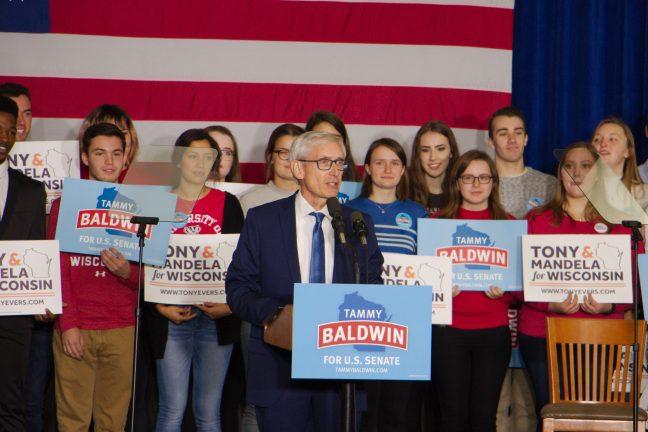Gov. Tony Evers promised his first state budget proposal will close the so-called “dark stores loophole” whereby big-box retailers such as Walmart or Menards contend the property value of their active stores are more comparable to vacant stores and thus appeal to pay property taxes as such — as if they were a vacant, dark store.
This issue gained traction in a very local 2008 state Supreme Court case, Walgreens v. City of Madison, and since then, state legislators from both parties and both chambers have tried and failed to put an end to this practice.
This question appeared on many Wisconsinites’ ballots last November as an advisory referendum: “Should the state legislature protect residential property taxpayers by preventing commercial and manufacturing property owners from using tax loopholes to shift the tax burden to homeowners?”
This is a very loaded question, but let’s try to understand the issue.
Property value assessors generally look at three criteria when determining taxable property values: The cost to construct an identical property, the net income generated from the property and the recent selling prices for similar properties.
Evers’ dedication to women’s health an important step in reversing dangerous Walker policies
The sales approach is a uniquely practical tool because the cost and income approaches tend to artificially inflate a commercial property’s value. Sales of similar properties represent what someone is actually willing to spend on that type of property. So an obvious objection is that these large retailers are not using comparable properties — they are choosing stores in bad locations where no business could possibly be profitable, properties that are run-down and empty, to evaluate a much more profitable property.
A common misunderstanding, as explained by Bob Vujea, the property tax manager of Meijer, is the difference between functional and economic obsolescence. A retailer may take on significant costs to make its store look a certain way and operate to its standards, but those costs only produce value to the present user. Someone who buys an active Meijer store might not be able to use any of its signage, drive-through windows, or other design elements. In an open market, that property might be worthless to them.
“A potential buyer is not concerned with the previous owner’s business,” Vujea said. “The buyer is purchasing the physical structure — not the business inside the structure — and that purchase determines the market value of comparable properties, whether vacant or occupied.”
Some equate this situation to the absurdity of having two identical homes, yet appraising one to be more valuable and more taxable simply because someone lives in it.
A second commonly-used argument against this assessment practice is that it unfairly shifts the tax burden onto homeowners who are forced to shoulder the remaining costs of essential municipal services.
“Homeowners will pay larger tax bills,” said Jerry Deschane, executive director of the Wisconsin League of Municipalities. “It’s a mathematical certainty.”
The state’s referendum question made similar implications in its wording. But this is an empty threat from lobbyists who hold a particular belief about taxation. Decreasing property taxes on highly profitable businesses and maintaining, even lowering, property taxes on homeowners are not mutually exclusive events.
The economic theory behind this phenomenon is supply-side theory, and it suggests that if government can reduce its spending, thereby lowering the tax burden on everyone, they will still gain a boost in revenue through economic growth. Obviously, there is a lot of political baggage in this discussion so we will not linger further, but the “mathematical certainty” is definitely not certain.
But most troubling for lawmakers trying to put an end to the dark store loophole is that any effort to selectively stack the tax rate against big-box retailers is, in fact, unconstitutional.
The uniformity clause of the Wisconsin Constitution, which requires uniform taxation of property, says “There is only one class of property, property that is taxable, and the burden of taxation must be borne as nearly as practicable among all property, based on value.” Courts have interpreted this to be a safeguard “against unequal, and consequently unjust taxation.”
Besides Wisconsin voters changing the clause in 1974 to allow for non-uniform taxation of agricultural land and undeveloped land, the uniformity clause is still intact. Legislators cannot vote to tax a property at a higher rate simply because the property is owned by a big-box retail company.
Before buying into the “dark stores loophole” spin, it is important to understand why the practice exists, always be suspicious of threatening language used to scare voters, and look into the actual process it takes to amend tax law before we start labeling things as loopholes.
Lianna Schwalenberg ([email protected]) is a recent graduate with degrees in communication arts and philosophy.














